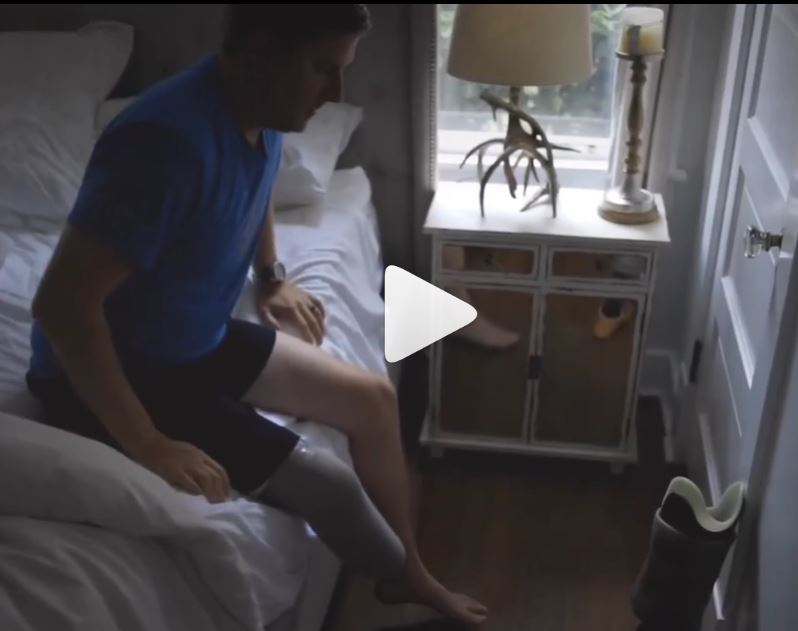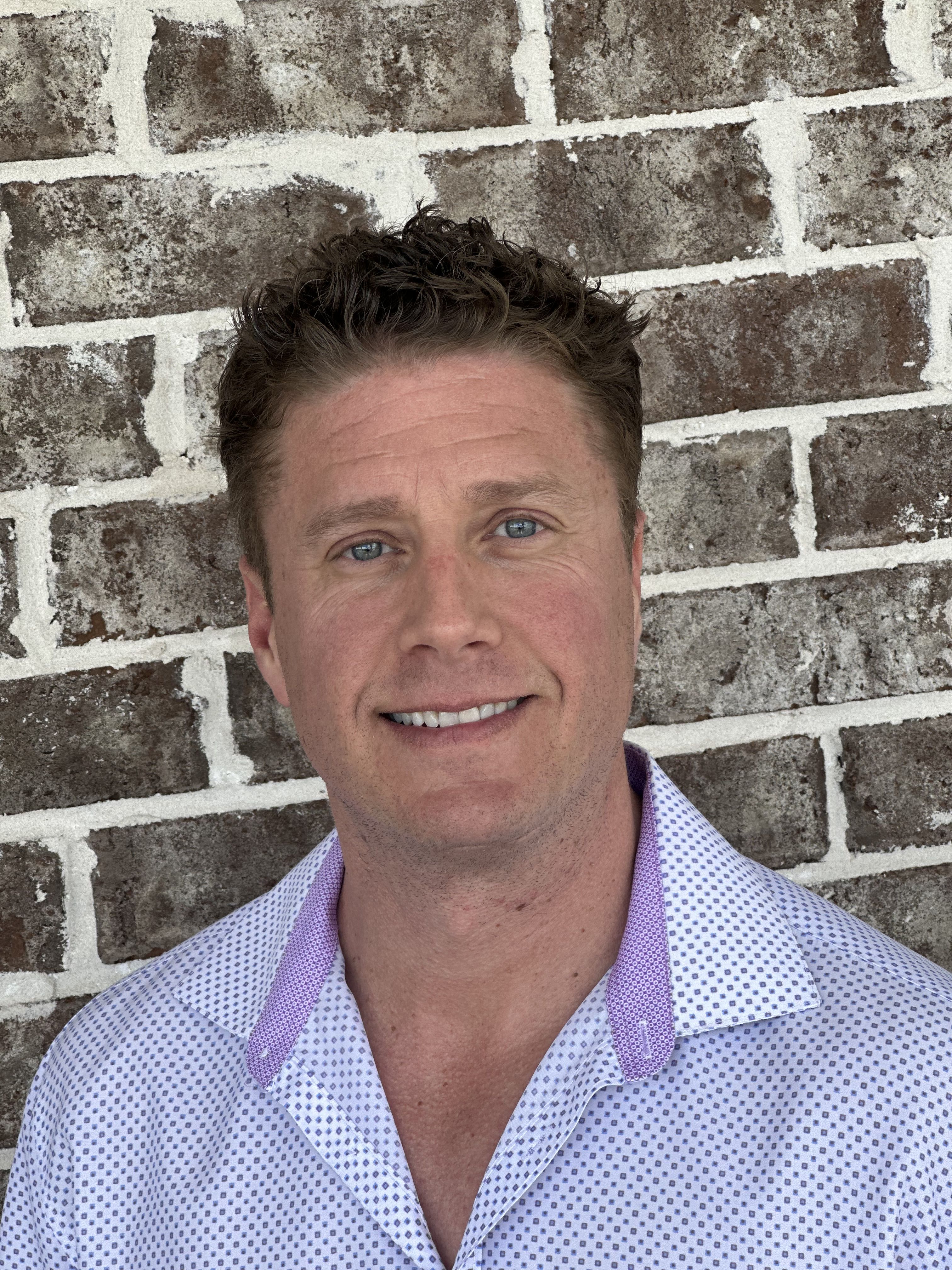The Powerful Impact of Restoring Connections
John Mabry (Baylor University, 2001) faced seemingly insurmountable obstacles to building a thriving career and idyllic family life – Delt covered his recovery story in the winter 2018 issue of The Rainbow. Mabry continues to overcome challenges, drawing strength through support from others. Through his recovery, he has learned the powerful impact of reconnecting, a universal lesson in challenging the friendship recession.
In college, he’d lost a leg in a tragic car accident that claimed the life of a friend and triggered a downward spiral including post-traumatic stress disorder, depression and opioid addiction. By late 2017 he was in recovery and had been working for a group of addiction treatment centers, traveling the country, speaking at colleges, universities, fraternities, sororities, and businesses and hosting a podcast on addiction.
“It was just the best gig I ever had. And I was using my work as my recovery. I was actually working a recovery program,” Mabry said. When new investors bought the treatment centers, Mabry suddenly lost his job in a round of layoffs and he started drinking again.
“I wasn’t working my recovery, wasn’t doing the things I was taught do in all the rehab centers I’ve been to, and just let my guard down, so that led to a relapse and divorce. I lost my house, my wife, my kids,” he said. Then, back in recovery four years ago, he moved to a sober living house for seven months. “I got out, and COVID hit. I was living on my own for the first time in my life, and man, that isolation just got the best of me. I just started eating. I put on 50 pounds. I’ve never been more depressed in my life. And yet I had all the tools, I had all the knowledge, I had all the information. I just wasn’t applying it. You’ve got to actually apply what you know; you can’t just say it.”
For a long time, Mabry felt he was trying to show that he was getting better for others. He needed to belong and feel accepted but said he wasn't facing the deeper work he needed to do on the inside. The isolation forced him to finally call a friend, a decorated Navy Seal, who helped Mabry recognize it was time to change course and call his sponsor.
“One thing I’ve learned is, man, I got to get people around ... I need to surround myself with people who are better than me. I need to surround myself with people who are really doing it in life. And as a person with substance use disorder, anxiety and depression, I want the easiest road possible. I want to make excuses, I want to use my traumas, my car accident, my finding my brother dead from an overdose, my divorce, I want to use those as excuses. And I was very successful at it,” Mabry said.
Today he’s back to working his program, conquering challenges and has dropped the extra 50 pounds. “I’ve had a shoulder injury and had some hangups even with my prosthetic leg and having more excuses if I wanted to make them, I’m back to my old self,” he said.
Mabry emphasizes the importance of surrounding himself with people who challenge him in a loving way. “I felt that when I was around my fraternity brothers at Baylor University years ago, there was that support and encouragement,” Mabry said. “I think a lot of guys these days, especially for younger men, social media is their connection. They’re connected online all day long, but are they really connected emotionally, spiritually, with those around them, with the world around them? I think that’s where I think a lot of people are going to fall through the cracks if they don’t make a conscious decision on a daily basis or sometimes hourly basis to connect, to connect in healthy ways.”
Immediately after his accident, his chapter brothers reached out, but Mabry felt disconnected as he went through 14 surgeries and eventually amputation. Much later, he realized his chapter brothers were young men who were probably scared and didn’t know what to do. There was no social media then, and they didn’t know what he was going through or how to help. Still, he believes in the power of connections and support through relationships.
Mabry hopes he can give back by helping others avoid pitfalls he encountered, which is deeply important to him as part of his recovery. “As a fraternity guy at a respected university, I had good grades and I never thought I would go down this path. I never thought I would end up in five rehab centers in seven years, getting addicted to painkillers and alcohol. It’s just not going to happen to me,” he said. He wants other guys to know that you could have everything buttoned up and put everything in your life together on the outside, but surrounding yourself with healthy, positive connections makes a difference.
It’s also important to remember that not everything is as it seems. As Mabry began launching social media content (@johnmabryconnects) focused on lessons he’s learned, he felt embarrassed by how much progress he had made and how far he fell so fast. “Getting back engaged in life and doing what God has called me to do — I’ve had to have a lot of help from people saying, ‘Man, you can do this, you can do this.’ And I’ve just been terrified to put myself back out there. What if I mess up again?”
While in graduate school, Mabry worked with the Challenge Athletes Foundation (CAF), a non-profit with a mission to provide opportunities and support to people with physical challenges, so they can pursue active lifestyles through physical fitness and competitive athletics. The Challenged Athletes Foundation believes that involvement in sports at any level increases self-esteem, encourages independence and enhances quality of life.
In recent years, CAF connected Mabry asking to feature him in a story with a corporate partner. “I did the interview, and everything went to crap. I’d lost everything and was living in a sober living house. And they called and said, ‘All right, we’re going to send the camera crew out in a couple of weeks.’”
Mabry struggled with what to do but landed on truth. “I’m working a program of honesty here in recovery,” Mabry told the CAF crew, “I just need to be honest. Here’s where I’m at. I’m going through a divorce, and I’ve lost it all, man. They’re like, ‘It’s all right. We’ll be able to do it anyway.’”

“What’s crazy is the video was shot four years ago. If you knew what was going on behind the scenes —you know, just a metaphor for what a lot of people put up on social media, all the highlights, they don’t know what’s really going on behind the scenes,” he said.
His early connection with CAF helped lay the groundwork for his involvement and encouraged his progress in recovery. “I am benefiting from it. I need that support. I need to show up at one of the clinics. I need to get back involved. So, it was cool, I set it up and I needed it the most,” Mabry said.
The main message Mabry wants to share concerns disconnection and how to reconnect. “Whether it’s physical, mental, spiritual or emotional wellness, it’s all centered around disconnection because I believe being disconnected was the root cause of my anxiety, depression and addiction.”
“Healthy connections, people who really care about you, it’s hard to find these days. People are so shallow and finicky and it’s hard to find. But I did it in support groups.”
With his ego in the backseat, he’s realized he needs to go to support group meetings all the time for the rest of his life. “It’s forever and it took me a while to figure that out, but it’s also given me a greater perspective and outlook on life by being challenged in a support group,” Mabry said. “I think we’re all in a support group one way or another; for college students, their support group could be Delta Tau Delta.”
“To reconnect is to let somebody know what’s going on,” Mabry said. “It’s sharing your story. For anybody who’s struggling, it’s important for them to share their story. And they don’t have to do it on, you know, don’t have to do it out in public like I’m doing, but just let somebody trusted or just let one person know, ‘Man, I’m really struggling in this area.’ And share that with somebody. And there’s so much healing when somebody is vulnerable, it sends a signal out to the world that, ‘Hey, I can’t get through this life on my own. I need you.’ And make that other person go, ‘Oh my gosh, I feel that way too.’”
Mabry draws strength from knowing he is not alone. After he opened up to his friend, his new healing process began – progress he calls slow but steady.

The Friendship Recession
The Arizona Daily Star reports 12 percent of Americans claim to have no friends. This is based on a 2021 American Perspectives Survey and is an increase of 3 percent from the 1990s.
The results have been mirrored elsewhere in the world, including the United Kingdom. In the UK, the number of young adults who reported having only one or no close friends jumped from seven percent to nearly 20 percent between 2012 and 2021.
Not only do we have fewer friends than we did a few years ago, we are also spending less time with the friends we have. Americans are now spending less than three hours per week with friends, down from just under seven hours in 2013.
Experts suggest that busy work schedules and having to relocate frequently has made maintaining friendships more difficult.
Strategies to Reconnect
- Don't wait. Reach out and say hello to someone you want to reconnect with.
- Assume people like you.
- If you are concerned about seeing someone in person, call or email to begin the conversation.
- Once you commit to getting together, go ahead and make plans.
- Be specific about what days you can meet or talk and settle on the details.
- Make the phone call, meet for a walk or coffee or do something that you both enjoy.
- Follow through on plans. You may feel nervous, but this is normal.
- Be honest and reliable. For example, if you’re running late, make an effort to tell your friend.
- Don't worry if you're out of practice.

